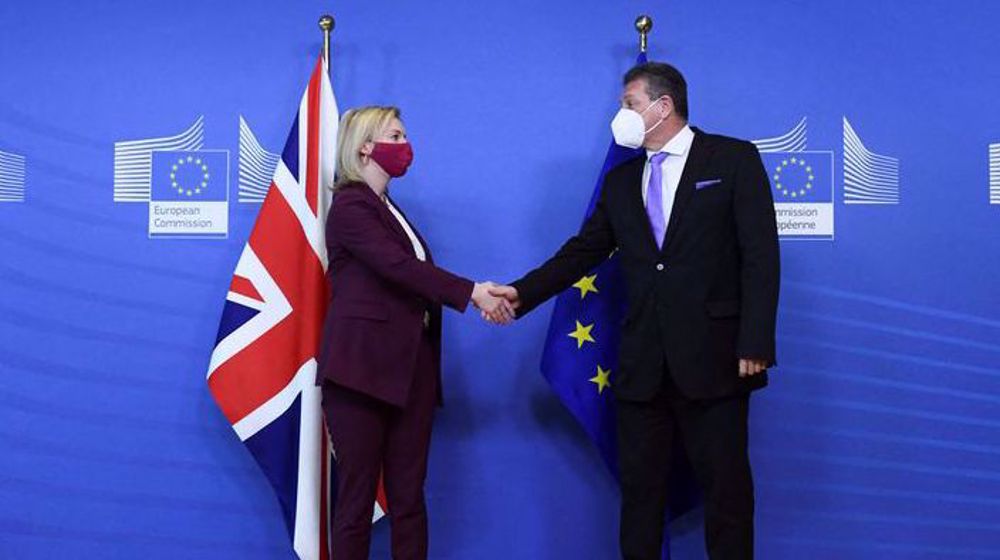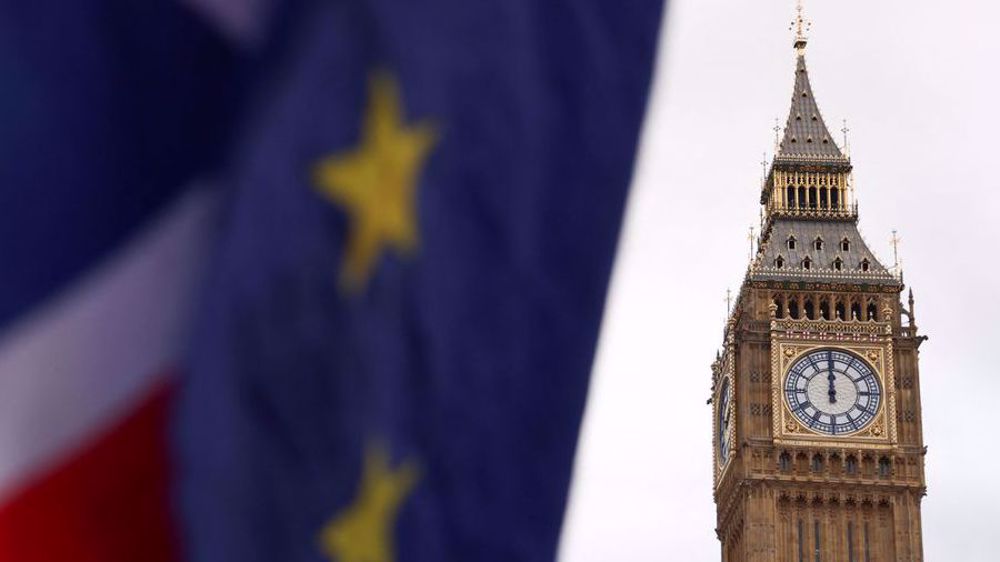EU warns of retaliation if UK presses ahead with plans to ditch NI protocol
The European Union has threatened to retaliate should the United Kingdom go ahead with its plans to ditch the Northern Ireland protocol.
Foreign secretary Liz Truss said in Parliament on Tuesday that the government will bring legislation to unilaterally ditch the protocol.
London and Brussels have been locked in a row for months over the protocol, a deal that London struck before it left the bloc and now says is unworkable.
The deal in effect created a customs border in the sea between Northern Ireland and the rest of the United Kingdom to preserve the province's open land border with EU member state Ireland.
Truss said the proposed law would make changes, such as freeing the movement of UK-made goods from "unnecessary bureaucracy" and regulatory barriers.
In a statement last week, she said, “Prices have risen, trade is being badly disrupted, and the people of Northern Ireland are subject to different laws and taxes than those over the Irish Sea, which has left them without an Executive and poses a threat to peace and stability.”
“The answer cannot be more checks, paperwork, and disruption. Our preference has always been for a negotiated solution but [we] will not shy away from taking action to stabilize the situation in Northern Ireland if solutions cannot be found,” she added.
On Tuesday, European Commission vice-president Maros Sefcovic said he had “significant concerns” about London’s plan and warned “unilateral actions are not acceptable”.
“Should the UK decide to move ahead with a bill disapplying constitutive elements of the protocol as announced today by the UK government, the EU will need to respond with all measures at its disposal.”
Meanwhile, the Labour party called on the government to comply with the deal it signed, and work with the bloc "to find practical solutions to these problems" rather than altering the deal unilaterally.
In addition, Ireland's foreign affairs minister, Simon Coveney, said the unilateral action from the UK was "damaging to trust".
Britain has previously argued it has grounds to trigger a clause in the deal allowing parts of the Brexit treaty to be abandoned - a move that could badly damage an already fragile diplomatic and economic relationship with the EU.
President Yoon Suk Yeol to be removed from office
At least 19 Gazans killed by Israeli airstrikes since dawn: Medics
Leader: Iran neither has nor needs proxy forces
US fighter aircraft shot down ‘in friendly fire’ amid aggression on Yemen
Yemeni FM: Israel’s sponsors accountable for ongoing aggression on Sana’a
Eight Palestinians killed as Israel attacks Gaza school, hospitals
VIDEO | Rome, Milan host new protests in solidarity with Palestinians
Dec. 21: ‘Axis of Resistance’ operations against Israeli occupation











 This makes it easy to access the Press TV website
This makes it easy to access the Press TV website